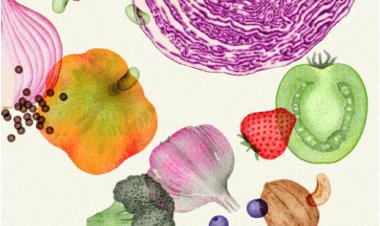Hina Khan Diagnosed with Stage 3 Breast Cancer: Key Preventive Measures and Symptoms
Hina Khan Diagnosed with Stage 3 Breast Cancer: Key Preventive Measures and Symptoms

Hina Khan Faces Stage 3 Breast Cancer – Essential Prevention and Symptom Awareness
In a distressing turn of events, popular actress Hina Khan has been diagnosed with stage 3 breast cancer. The news has sent shockwaves through her fan base and the entertainment industry, highlighting the importance of awareness about breast cancer, its symptoms, and preventive measures. As Hina Khan begins her battle against this formidable disease, it is crucial to spread knowledge that can help others recognize early signs and take preventive actions.
Understanding the symptoms of breast cancer is the first step in ensuring early detection. Common signs and symptoms to look out for include:
-
Lump in the Breast or Underarm: One of the most common indicators of breast cancer is the presence of a new lump or mass in the breast or underarm area. These lumps are often hard, painless, and have irregular edges, though some can be soft and tender.
-
Changes in Breast Shape or Size: Any noticeable changes in the size or shape of the breast should be taken seriously. This includes swelling or shrinkage, especially if it occurs only on one side.
-
Skin Changes: Watch for any unusual changes in the skin over the breast, such as dimpling, puckering, or redness. The skin might also take on a texture similar to an orange peel.
-
Nipple Changes: This includes any sudden changes in the appearance of the nipple, such as inversion (turning inward), discharge (especially if it is bloody), or scaling of the nipple or surrounding skin.
-
Pain: While breast pain is more often associated with benign conditions, persistent or unusual pain in the breast or nipple area should be evaluated by a healthcare professional.
Preventive measures are essential in the fight against breast cancer. Here are some key strategies to reduce the risk:
-
Regular Screening: Mammograms are the most effective screening tool for early detection of breast cancer. Women over 40 should have annual mammograms, though those with a higher risk may need to start earlier. Regular clinical breast exams and self-exams are also important.
-
Healthy Lifestyle: Maintaining a healthy weight, staying physically active, and eating a balanced diet rich in fruits and vegetables can lower the risk of breast cancer. Limiting alcohol intake and avoiding smoking are also crucial preventive measures.
-
Genetic Testing and Counseling: For those with a family history of breast cancer, genetic testing can identify mutations in genes such as BRCA1 and BRCA2, which significantly increase the risk of developing breast and ovarian cancers. Genetic counseling can provide guidance on managing these risks.
-
Medication and Surgery: In some high-risk cases, doctors may recommend preventive medications such as tamoxifen or raloxifene. For those with extremely high risk, prophylactic surgeries, such as mastectomy or oophorectomy, may be considered.
-
Breastfeeding: Studies suggest that breastfeeding, especially for more than one year, can slightly lower the risk of breast cancer.
The news of Hina Khan’s diagnosis serves as a poignant reminder of the importance of vigilance and proactive health management. As a public figure, Hina's openness about her condition can help raise awareness and encourage others to take their health seriously.
In her fight against breast cancer, Hina Khan joins a community of survivors and warriors who have faced similar battles. Support from fans, family, and the wider community can provide much-needed strength and encouragement during this challenging time. Her journey underscores the resilience and courage required to confront such a diagnosis and serves as an inspiration to many.
As Hina Khan embarks on her treatment journey, her experience highlights the critical need for continuous research and advancements in breast cancer treatment. Innovations in medical technology and therapies are improving survival rates and quality of life for patients, making the support for cancer research and treatment developments more important than ever.
In conclusion, Hina Khan's diagnosis with stage 3 breast cancer has brought the issue of breast cancer awareness and prevention to the forefront. By understanding the symptoms and taking preventive measures, individuals can significantly improve their chances of early detection and successful treatment. As we support Hina and others battling breast cancer, let us also commit to spreading awareness and fostering a culture of proactive health management.

 shivani
shivani 



